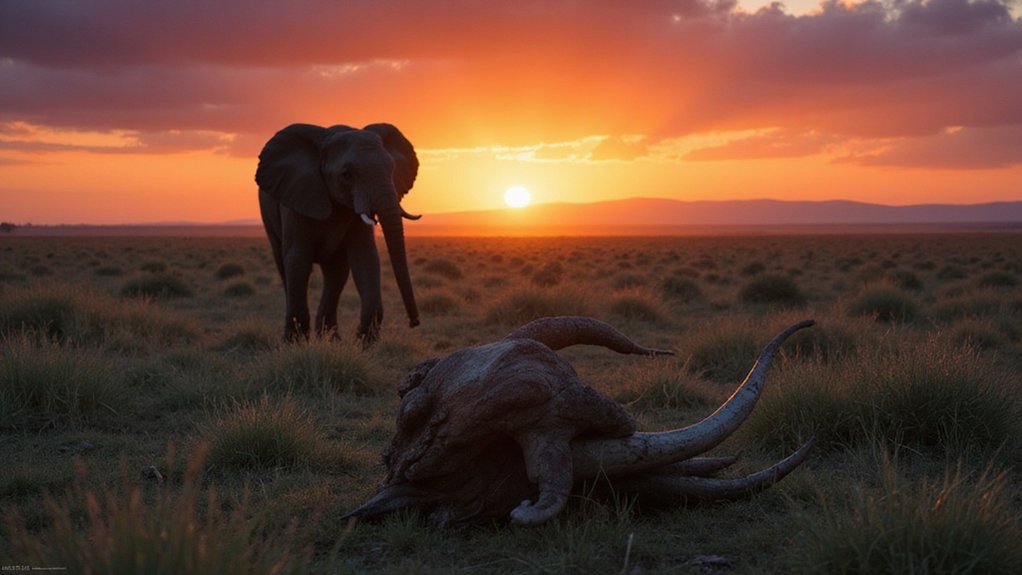The trophy hunting controversy sparks strong emotions on both sides. You might wonder why some people champion regulated hunting while others vehemently oppose it. The debate intertwines ethics, economics, and wildlife conservation, making it complex. As you explore the arguments for and against, you’ll discover how this practice impacts ecosystems and local communities. What’s at stake, and what alternatives could offer a solution?
What Is the Trophy Hunting Controversy?
The trophy hunting controversy arises when people debate the ethics and implications of hunting wild animals for sport, often leading to heated discussions.
Critics argue that killing animals for pleasure can contribute to species decline, disrupt ecosystems, and raise moral concerns about animal welfare. They believe that valuing wildlife shouldn’t come from trophies but from conservation efforts.
On the other hand, some assert that regulated trophy hunting can fund conservation programs and support local economies.
This complex issue pits emotional responses against practical considerations, making it essential for you to understand different perspectives to form your own opinion on trophy hunting.
Why Do People Support Trophy Hunting?
Supporters of trophy hunting often emphasize its potential benefits for wildlife conservation and local communities. They argue that regulated hunting generates significant revenue, which can fund conservation efforts and habitat protection.
By providing financial incentives, trophy hunting can encourage locals to prioritize wildlife preservation over poaching. Additionally, supporters believe it promotes sustainable management of animal populations, helping to maintain ecological balance.
Many hunters also view their activities as a way to connect with nature and support local economies through tourism. Ultimately, they see trophy hunting as a means to foster both conservation and economic growth in regions where wildlife thrives.
What Are the Main Arguments Against Trophy Hunting?
While some argue trophy hunting has benefits, many critics contend it poses significant ethical and ecological issues. You might feel that taking a life for sport is morally questionable, especially when it involves endangered species.
Additionally, opponents argue that trophy hunting can disrupt local ecosystems, leading to imbalances that harm other wildlife. There’s also concern about the potential for poaching, as legal hunting can create a cover for illegal activities.
Ultimately, some believe the money spent on trophies could be better invested in conservation efforts that protect entire habitats instead of just individual animals.
How Does Trophy Hunting Affect Wildlife Populations?
When considering the impact of trophy hunting on wildlife populations, it’s clear that this practice can lead to both positive and negative outcomes.
On one hand, regulated trophy hunting can help manage animal populations, prevent overgrazing, and fund conservation efforts. By targeting specific animals, it can enhance genetic diversity.
On the flip side, excessive hunting can deplete populations, disrupt ecosystems, and threaten vulnerable species.
You might find that the key lies in sustainable practices and effective regulation. Balancing these factors is essential to ensuring that trophy hunting contributes positively to wildlife conservation rather than compromising it.
What Are the Economic Impacts of Trophy Hunting?
Trophy hunting can greatly influence local economies, especially in regions where wildlife tourism is a primary source of income. When you participate in trophy hunting, your fees often fund conservation efforts, create jobs, and support local communities.
These activities can lead to improved infrastructure and services, benefiting both residents and tourists. In addition, trophy hunters frequently spend money on lodging, food, and guides, generating revenue that circulates within the community.
However, the economic benefits can be controversial, as some argue that sustainable tourism should prioritize wildlife viewing over hunting. Balancing these interests is crucial for long-term economic stability.
How Do Laws and Regulations Affect Trophy Hunting Practices?
Laws and regulations greatly shape trophy hunting practices, influencing everything from the species that can be hunted to the fees required for permits.
Depending on where you hunt, you might find strict quotas or specific seasons that limit your options. Some countries enforce bans on hunting endangered species, while others allow limited hunting under strict conditions.
You’ll also see varying permit costs, which can affect your choice of destination. Compliance with these rules is essential, as violations can lead to hefty fines or loss of privileges.
Ultimately, understanding these laws helps guarantee responsible and sustainable hunting practices.
What Alternatives to Trophy Hunting Exist?
With increasing awareness of the ethical implications surrounding trophy hunting, many are exploring alternatives that promote wildlife conservation without the need for hunting.
Ecotourism stands out as a popular option, allowing you to experience wildlife in their natural habitats while supporting local communities.
Wildlife photography and volunteer programs also offer meaningful ways to engage with nature, helping to protect species and habitats.
Adopting a wildlife-friendly lifestyle, like supporting sustainable products, can further aid conservation efforts.
What Can Be Done to Address the Trophy Hunting Controversy?
While many people are passionate about wildlife conservation, addressing the trophy hunting controversy requires a multifaceted approach that includes policy changes, education, and community engagement.
You can advocate for stricter regulations on hunting practices and support organizations that promote sustainable wildlife management.
Engaging local communities is essential—empowering them through eco-tourism can create economic incentives to protect wildlife instead of hunting them.
Educating others about the ecological impacts of trophy hunting can shift public perception.
